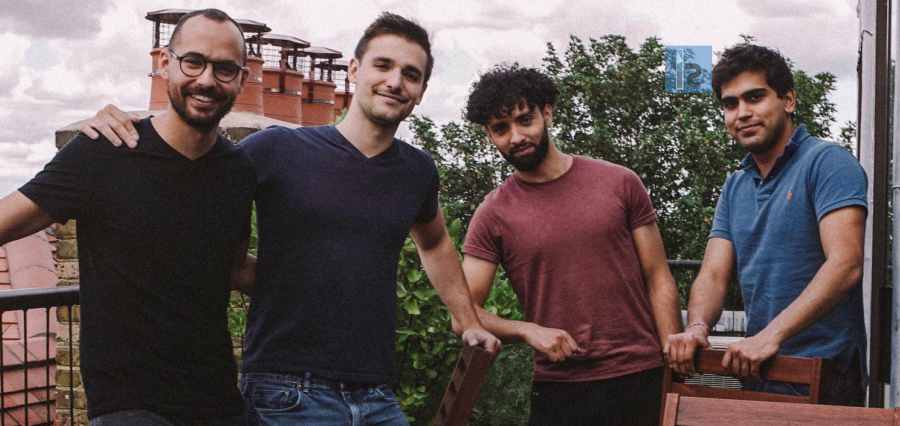Technology has been an evident catalyst in the reformation of every industry we know today. Organizations across the world are exploiting every ounce of opportunity there is within disruptive technological spheres such as Artificial Intelligence, Blockchain, Machine Learning etc.; ultimately leading to the delivery of innovative products and solutions that encompass the potential to redefine the very functioning of a certain industry.
We at Insights Success, have been on a ceaseless endeavor to seek and exhibit organizations that hold this potential. To give you a precise idea of this motive, we present to you, Observe Technologies, which is consistently striving to build a pioneering artificial intelligence platform to help aquaculture farmers decide, how best to manage their farms.
Observe was founded in London by Hemang Rishi, the CEO and Pieter Fabry, the CTO in early 2017 out of the deep tech London accelerator Entrepreneur First. Primarily, they wanted to use their engineering skill sets to bring a positive affect in the agriculture space, but came across aquaculture after some time in the industry.
The co-founders believe that Farmers spend their entire day monitoring their stock on video screens, looking for changes in fish behaviour to try and determine the fish’s satiety. They then manually adjust the amount of feed released into the cage based on what they see. This requires constant concentration, as farmers combine their interpretation of visual data with a plethora of environmental data streams gauging oxygen levels and current rates, feed intensities, historic fish growth and many more factors.
This led the co-founders to understand and express that at the moment, there is no way of monitoring and evaluating feeding strategies objectively. Commonly, feeding strategies are an ‘art’: a reflection of the farmers’ spontaneous decision on how much food to put in a cage based on what they saw over the day. There are no unbiased measures of feed strategies to directly explain when a site produces good or bad FCR scores. As such, the co-founders saw providing data driven insight to this critical part of feeding essential to improving the sustainability of the industry.
Pertaining to this, Observe Technologies envisions converting aquaculture processes from an art to a science by using Artificial Intelligence and data processing to identify measurable patterns in feeding activities and strategies to present to farmers.
The system is built to be adaptable and empowering for farmers by seamlessly tapping into the existing sensors, feed systems and cameras on site. It collects this data through a multitude of AI algorithms to optimise the farm’s performance; from the cost efficient use of feed to maintaining fish welfare.
The company believes that past innovations have focused on hardware and data collection; however Observe Technologies discovered, the problem is not a lack of data, but the rigour and overwhelming pressure on farmers to consistently interpret that data and apply correlations with fish activity, feeding patterns, sensory data, food particles and other historical information in real time.
“Our aim is to use AI in aquaculture to allow farmers to do more with the information already available on farms,” the co-founders express.
To facilitate this idea, the platform requires no new cage equipment to run on a site. “Our product is a standalone ‘plug and play’ system which can interface with any existing camera streams found in salmon farms, analyse them in milliseconds to provide a standardised view of fish activity and the detection of food particles at different depths,” state the co-founders. Additionally, companies have the opportunity to plug in their own site sensors, feeding systems and other auxiliary data to make the analysis more comprehensive leading to the automation of farms.
Leveraging the Present
When asked about the other opportunities which Observe Technologies plans to realize, the co-founders state, “Improving the environmental footprint and providing the possibility to standardise and reduce costs is just the start for AI in aquaculture. Going forward, we intend for our AI systems to automate entire aspects of the feeding process, bringing significant increases in productivity, and lowering costs for consumers.”
Over the next few months, Observe Technologies will be introducing systems to measure the biomass of the fish automatically in the water as well as systematic automation. It believes that when scaled, the impact this will have on the blue economy and environment is immense. By utilising a cost effective way to feed, Observe aims to greatly reduce the environmental impact of aquaculture to help the industry continue to expand. It also allows the company to better monitor the health of the cages, using anomaly detection to identify at risk sites and respond before they become an issue. This creates a new world of adherence to compliance over food quality whilst making a fish farmer’s life easier.
Additionally, though the company only works with salmon at present, it is simple to apply the same architecture to all fish production. The adaptability of its learning algorithm means AI in aquaculture is incredibly transferable and will eventually allow us to branch out across the €178.34bn aquaculture market. “Through closely working with farms we want to help them to analyse their data to provide benefits for them across the whole value chain, from feed companies to regulators,” the co-founders express.
Building the Future
“We think that observe will always align itself with improving the sustainability of the ocean,” the co-founders express.
Having partnered with the leading technology company in the industry, AKVA Group, Observe Technologies has been able to scale across the world – From Chile to Canada, Australia, Scotland and Norway. This growth has been driven by industry demand and the company’s partnership has opened many avenues for future development.
“We have found a lot of interesting and valuable problems in the aquaculture space, and Observe is excited to continue growing and working to make fish the most sustainable source of protein in the world,” conclude Hemang and Pieter.

Observe Technologies' London team

